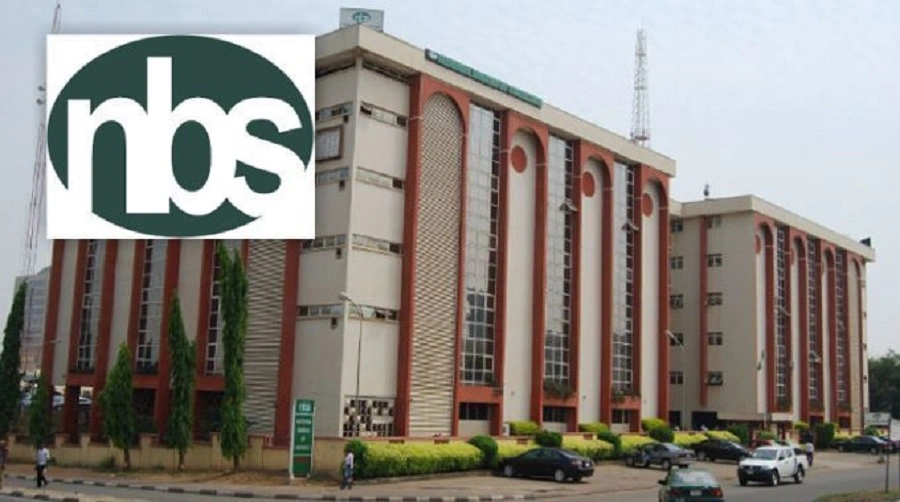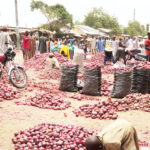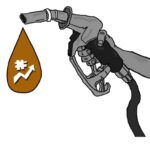Nigeria’s inflation figure recorded its first decline in 19 months, dropping to 33.40 percent in the month of July.
A report by the National Bureau of Statistics (NBS) stated that the drop when compared to the 34.19% recorded in June was 0.8% points.
On a year-on-year basis, the headline inflation rate was 9.32% points higher compared to the rate recorded in July 2023, which was 24.08%. This shows that the headline inflation rate (year-on-year basis) increased in July 2024 compared to the same month in the preceding year (i.e., July 2023).”
It added that on a month-on-month basis, the headline inflation rate in July 2024 was 2.28%, which was 0.03% lower than the rate recorded in June 2024 (2.31%).
“This means that in July 2024, the rate of increase in the average price level was lower than the rate of increase in the average price level in June 2024”.
It went on to state that the Food inflation rate in July also reduced to 39.53% when compared to the 40% in June 2024.
But on a year-on-year basis, there was a 12.55% point increase compared to the rate recorded in July 2023 (26.98%).
“The rise in Food inflation on a year-on-year basis was caused by increases in prices of the following items Semovita, Yam Flour (Prepacked), Wheat Flour (Prepacked), etc (Bread and Cereals Class), Yam, Irish Potatoes, Water Yam, etc (Potatoes, Yam & Other Tubers Class), Groundnut Oil, Palm Oil, (Oil & Fats Class) and Milo, Bournvita, Ovaltine (Coffee, Tea & Cocoa Class), etc.
“On a month-on-month basis, the Food inflation rate in July 2024 was 2.47% which shows a 0.08% decrease compared to the rate recorded in June 2024 (2.55%). The fall can be attributed to the decline in the rate of increase in the average prices of Tin Milk, Baby Powdered milk, etc (Under Milk, Cheese & egg Class), Mudfish fish, Fresh fish (Obokun), snail, etc (Under Fish Class), Date Palm fruit (Debenu), Watermelon, etc Garri, Akpu (fufu), etc (Under Bread and Cereals Class), Exercise books, Textbooks, etc (Under Books & Stationeries Class) and Turkey meat, Minced Pork, etc (Under Meat Class).”
Daily Trust reports that economists had forecast that the inflation figure in July would see a drop due to the CBN’s aggressive approach towards raising rates.
In its macroeconomic update released on Tuesday, Meristem stated that it expected a slowdown in food inflation in July 2024, driven by the increased supply of essential food items like yam, which led to lower prices.
Commenting on the inflation figure, the President of Association of Capital Market Academics in Nigeria, Prof. Uche Uwaleke, noted that the easing in the headline inflation rate was due to the moderation in food inflation occasioned by the harvest season.
He, however, urged the government to shift its attention to fiscal policies to help rural areas in stimulating business activities hampered by low productivity in food production.
“The drought reported in many parts of the North partly explains the high rate of food inflation in states like Sokoto (46.26%) and Jigawa (46.05%). Also note that the rural inflation rate increased in the month of July. What all these point to is that it is time for the CBN to recognise the real pressure points and shift some attention to how the fiscal authorities can be supported to boost food production beginning with a halt in MPR hike next month.”

 Join Daily Trust WhatsApp Community For Quick Access To News and Happenings Around You.
Join Daily Trust WhatsApp Community For Quick Access To News and Happenings Around You.


